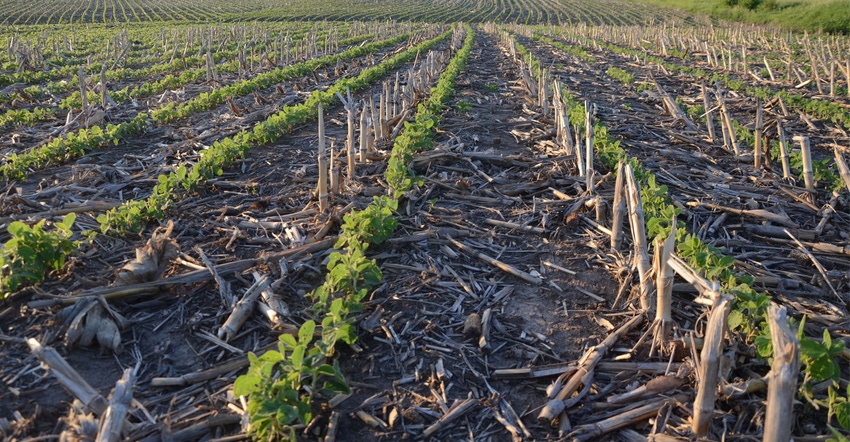
From the confirmation of Greg Ibach to his new rule in USDA to the selection of a new director of agriculture to the widespread issues with down corn and the continued expansion of resistant weeds, 2017 was a big year for those involved in agriculture in Nebraska.
As we ring in the new year, let's take a moment to reflect on some of the biggest stories from last year:
Changing roles in Nebraska Department of Agriculture. Greg Ibach was confirmed to his new role as USDA undersecretary for Marketing and Regulatory Programs, and was sworn in by USDA Secretary Sonny Perdue in late October.
Steve Wellman, who farms near Syracuse in southeast Nebraska, was then selected by Gov. Pete Ricketts to serve as the new Director of Agriculture for Nebraska.
Syracuse farmer named Nebraska's next director of agriculture
Nebraska's poultry sector continues to expand. In June, Costco broke ground for its new state-of-the-art poultry processing facility near Fremont. The plant will begin production in April, 2019, and is expected to bring about 800 jobs to the community and bring an economic impact of $1.2 billion each year. In August, Hendrix Genetics opened the doors for its new chicken hatchery in Grand Island, and in October, opened the doors for its new turkey hatchery in Beatrice.
Costco breaks ground for poultry processing plant
Ricketts touts value-added ag, ethanol growth at annual ACE conference
Nebraska is the place to be for livestock expansion
Nebraska experiences widespread corn ear loss. Drought stress during pollination, rapid drydown and high winds lead to losses of anywhere from 20 to 70 bushels in some Nebraska fields. In addition to harvest losses, the extra energy left in the field brought a new set of challenges, as well as opportunities, for those with cattle grazing corn residue.
Lessons learned from dealing with excessive downed corn
Resistant weeds on the rise and issues with dicamba injury. Resistant Palmer amaranth continues to spread northward in Nebraska, along with other pigweed populations. This year commercially availability of dicamba-tolerant soybeans was used as a viable tool against glyphosate-resistant weeds. Nearly 500,000 acres were planted with dicamba-tolerant soybeans in Nebraska this year. However, around 50,000 acres of soybeans in Nebraska saw symptoms dicamba injury in 2017.
Drift may deserve more blame for dicamba injury
Take steps to keep the good from dicamba, but prevent the bad
Despite challenges, August conditions could make a difference for corn, soybeans
Strategies for Palmer amaranth control
The property tax discussion continues. After no bill providing property tax relief was passed during the 2017 Unicameral, property taxes continue to be a perennial issue in Nebraska. Moving into 2018, stakeholders hope to bring urban and rural senators together to form one or two bills in a package that may provide some form of relief. Some organizations are considering lawsuits against the state as a last resort for property tax relief.
Looking onward to 2018 for property tax relief
Ricketts talks taxes with Nebraska Farmer
Coalition comes together to urge property tax reform
Keystone XL alternative route approved. In November, the Nebraska Public Service Commission voted to approve an alternative route for the Keystone XL pipeline. While not TransCanada's "preferred" route, the alternative mainline route starts in Keya Paha County and ends in Jefferson County — just like the preferred route. However, the mainline alternative route stretches out farther east, affecting landowners not affected by the original route.
PSC approves Keystone XL alternative mainline route
6 things to know about the Keystone XL pipeline
About the Author(s)
You May Also Like








